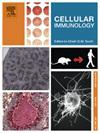Enhancing the antitumor activity of CD19/BCMA CAR-T cells in vitro with a PD1IL7R chimeric switch receptor
IF 2.9
4区 医学
Q2 CELL BIOLOGY
引用次数: 0
Abstract
Chimeric antigen receptor (CAR)-T cell therapy has revolutionized the treatment of hematologic malignancies, but its long-term efficacy is hindered by antigen escape, T-cell exhaustion, and the immunosuppressive tumor microenvironment (TME). Programmed death ligand 1 (PD-L1) expression in the TME inhibits CAR-T cell function, limiting persistence and cytotoxic capacity. To address this, we engineered CD19/BCMA-targeted CAR-T cells co-expressing a PD1IL7R chimeric switch receptor (CSR). This novel receptor converts PD-L1-mediated inhibitory signals into IL7R-driven pro-survival and proliferative pathways, enhancing CAR-T cell expansion, persistence, and cytotoxicity in a PD-L1–dependent but antigen-specific manner. In vitro, CD19/BCMA-PD1IL7R CAR-T cells exhibit improved central memory T-cell formation, increased cytokine secretion, and superior antitumor activity compared to conventional CAR-T cells. Notably, these functional enhancements were evident even at low levels of PD-L1 expression on target cells, and no off-target effects were observed. Our findings suggest that incorporating the PD1-IL7R switch receptor into CAR-T cells effectively overcomes PD-L1–mediated immunosuppression, enhancing both their persistence and antitumor efficacy. This approach offers a versatile strategy for improving CAR-T therapy in the treatment of both hematologic and solid tumors.

PD1IL7R嵌合开关受体在体外增强CD19/BCMA CAR-T细胞的抗肿瘤活性
嵌合抗原受体(CAR)-T细胞疗法已经彻底改变了血液系统恶性肿瘤的治疗,但其长期疗效受到抗原逃逸、t细胞耗竭和免疫抑制肿瘤微环境(TME)的阻碍。程序性死亡配体1 (PD-L1)在TME中的表达抑制CAR-T细胞功能,限制持久性和细胞毒性能力。为了解决这个问题,我们设计了CD19/ bcma靶向CAR-T细胞,共表达PD1IL7R嵌合开关受体(CSR)。这种新型受体将pd - l1介导的抑制信号转化为il7r驱动的促生存和增殖途径,以pd - l1依赖但抗原特异性的方式增强CAR-T细胞的扩增、持久性和细胞毒性。在体外,与常规CAR-T细胞相比,CD19/BCMA-PD1IL7R CAR-T细胞表现出改善的中枢记忆t细胞形成、增加的细胞因子分泌和优越的抗肿瘤活性。值得注意的是,即使靶细胞上的PD-L1表达水平较低,这些功能增强也很明显,并且没有观察到脱靶效应。我们的研究结果表明,将PD1-IL7R开关受体纳入CAR-T细胞有效地克服了pd - l1介导的免疫抑制,增强了它们的持久性和抗肿瘤功效。这种方法为改善CAR-T治疗血液和实体肿瘤提供了一种通用的策略。
本文章由计算机程序翻译,如有差异,请以英文原文为准。
求助全文
约1分钟内获得全文
求助全文
来源期刊

Cellular immunology
生物-免疫学
CiteScore
8.20
自引率
2.30%
发文量
102
审稿时长
30 days
期刊介绍:
Cellular Immunology publishes original investigations concerned with the immunological activities of cells in experimental or clinical situations. The scope of the journal encompasses the broad area of in vitro and in vivo studies of cellular immune responses. Purely clinical descriptive studies are not considered.
Research Areas include:
• Antigen receptor sites
• Autoimmunity
• Delayed-type hypersensitivity or cellular immunity
• Immunologic deficiency states and their reconstitution
• Immunologic surveillance and tumor immunity
• Immunomodulation
• Immunotherapy
• Lymphokines and cytokines
• Nonantibody immunity
• Parasite immunology
• Resistance to intracellular microbial and viral infection
• Thymus and lymphocyte immunobiology
• Transplantation immunology
• Tumor immunity.
 求助内容:
求助内容: 应助结果提醒方式:
应助结果提醒方式:


